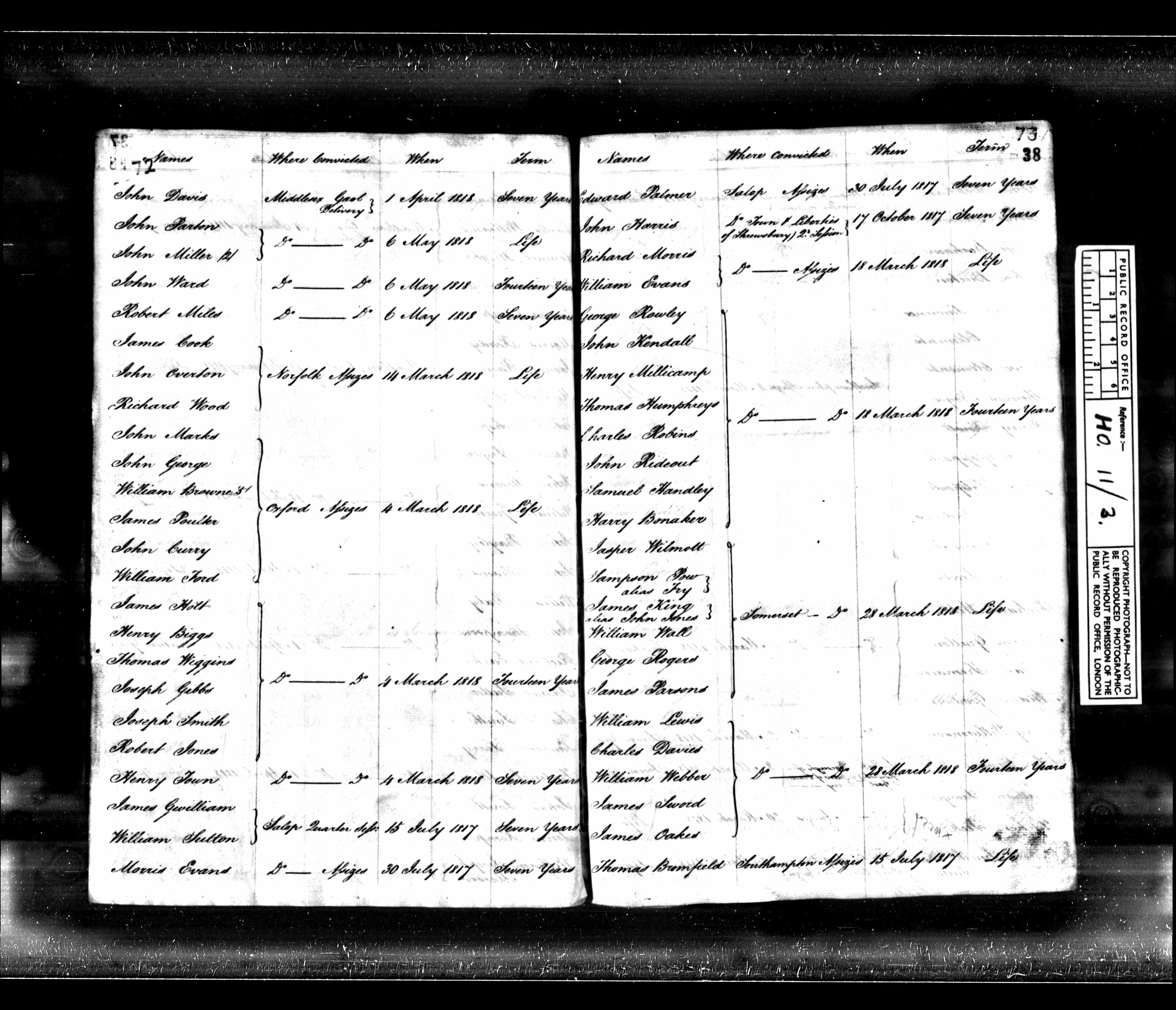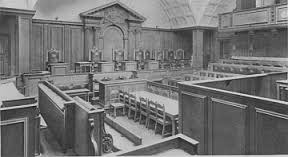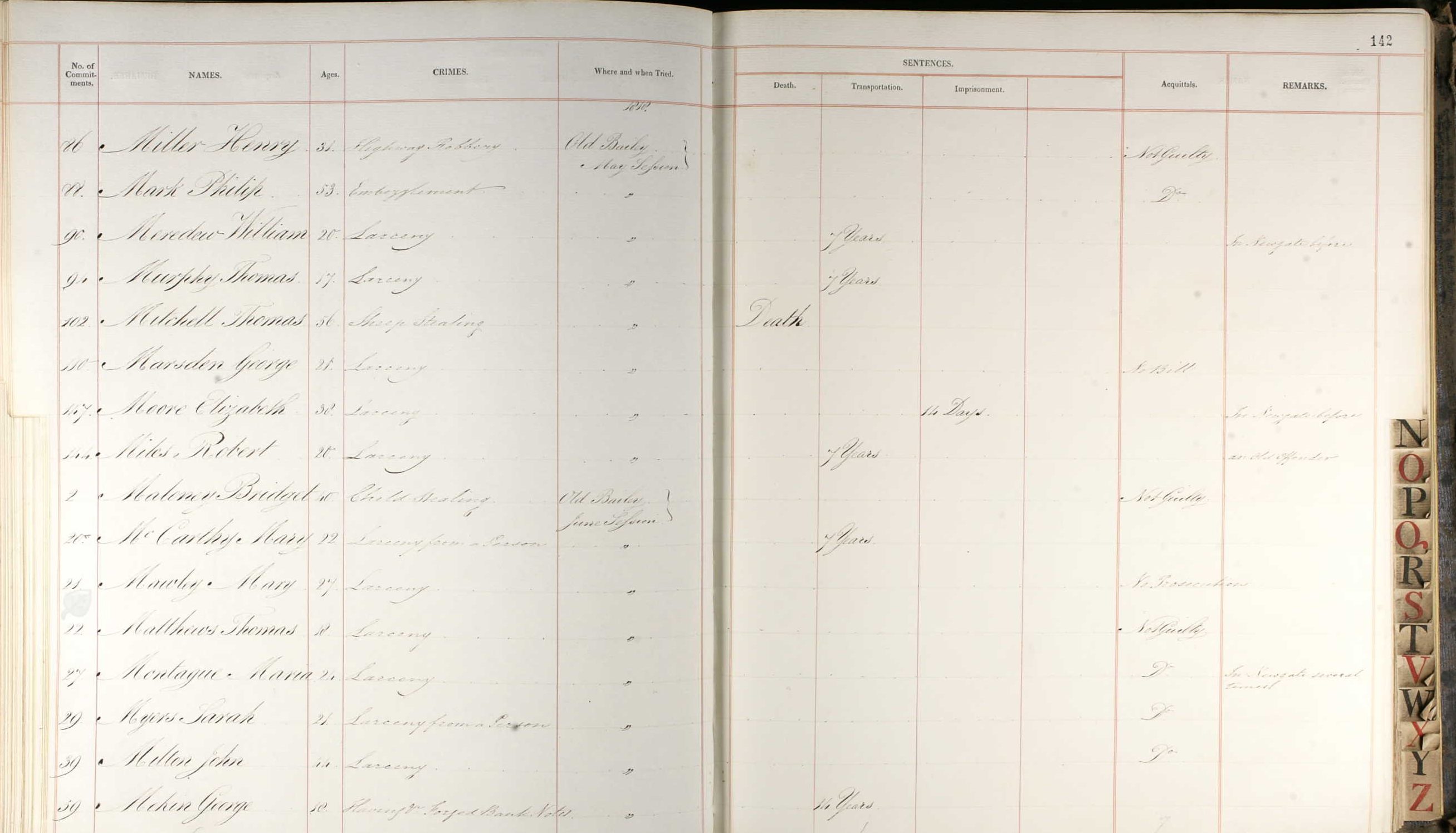I came across this recently, which was sent to my grandfather by his sister Edith. My guess is that it was written in the late 1920’s, or early 1930’s; largely by her use of the present tense when referring to Edward Elworthy’s widow.
Family History
What I know about the ancestry of the Elworthy family amounts to very little and is for the most part derived from hearsay evidence.
There appear to have been two branches, one living in Devon, and the other in Somerset, the latter being most aristocratic, and using a crest.
Between our branch (Devon) and the other, I believe there was only a distant cousinship. The only member of the latter that I met was a girl in N. Zealand, daughter of Edward Elworthy [1836 -1899] who emigrated from his native land, first to the Darling Doors?? Island, in the early days of that state, but soon after went to New Zealand where he mad a fortune in agricultural pursuits, and was able to endow all his children liberally. Edward Elworthy married a Miss Horrocks ( of Over Darwen ) [ actually Sarah Maria Shorrocks (1844 -1933) ]and her I also met. She has been a widow for some years. These Elworthys are considered one of the finest families in Christchurch. The mother and daughter who I met were not particularly friendly. The daughter suffered from some form of hip trouble judging from the limp. She was the only unmarried one, and spent most of her time travelling to and from Europe with her mother. When I met them they had done it a round dozen times.
They showed me a drawing of a beautiful girl (Early Victorian) rather like Gladys. Her name was Muriel and she was a noted S. of England beauty in her day. They mentioned all the names that we have in our family.
With regard to this family, a Mrs Campbell Thomson, a N. Zealander also hailing from Christchurch happened to meet Isobel and myself at [unclear unclear looks like Twat Hands] just before Isobel’s marriage, and before she learnt our names exclaimed “ I am sure the very dark one is an Elworthy, she is so like Edward Elworthy ! “
That is practically all I know about them except that two of them married two of the children of Archbishop Julius, Primate of New Zealand.
On our side, we have had handed down the tradition of Squire Elworthy of Pym or Peem, a direct ancestor, who was very wealthy, and who saved the bank when it was in imminent danger of collapse, by carrying in his money bags somewhere about the time of the South Sea Bubble. He gave each of his 25 children a farm and more than comfortable, breaking the entail to do so.
Had Uncle William in a hot fit of irresponsibility not set fire to an old oak chest full of ancient, valuable, and almost indecipherable documents during his father’s absence, there would doubtless be a fair lot more of information (authentic) available about those who went before. His father wept over the loss and declared that he had done untold harm to his family – but William as a youth was always a bit taken that way.
However Mother says it is perhaps just as well we don’t know much more about the family – we might be shocked.
The mother of William, John, Henry, and Eliza was a Serle, and she died when John was only 8 and left the children just when they most needed a mother’s care and training. Therefore I think they must rather have lacked manners.
At any rate, Uncle used to tell Isobel about an Uncle he used to visit who was rather overwhelming in his grandeur in the boy’s eyes. The old gentleman kept up style, and insisted on being treated with respect and deference on the part of his dependants. One young servant, in William’s presence, tried to bring the old man a letter without a salver under it, and got much sworn at and kicked from the room for his pains !
Uncle also told Isobel that the old place in Devon was in such dreadful disrepair it was not worth looking up. He was terribly disappointed.
There were some cousins named Searle ( if they survived the war) who were educated at Oxford, and one became a clergyman, and the other a D. of medecine. Their mother was the famous Phoebe Ditton of the auburn ringlets who tried to marry both William, and John, and finally contented herself with a cousin. She was the daughter of a clergyman who lived near the old Elworthy home, either at Hockleigh or Inderley?? ( names of the villages thereabouts). She [four undecipherable words] when Uncle renewed his acquaintance with her that he was quite pleased that he had not made her his wife. She was a nice old party – but had a very hard life.
When Isobel went through her dark time at the hospital, her night nurse who was a great comfort to her was a Sister Vera Elworthy – daughter of Frederick Elworthy of Macaleay?? This family through Minnie’s mother was more nearly related to her than ours. Anyway she belongs to the Devon E’s. She is a nice sympathetic type of girl. She is very big, but beautifully made, 5ft 8 1/2 inches in height ( her father was 6ft 4.) She has big blue eyes, dark hair, a good chin and a very pleasant face. Her father died at the age of 65 from cancer contracted through cattle it is thought. he left a good deal of property round Thackery, North Queensland. he was always studying medicine, and had innumerable medical works in his possession. he knew he was very ill long before he acquainted his family. Her only brother Frank went to the war, and came safely back – one of her sisters married a squatter named Shannon, and another is engaged to a solicitor in Brisbane. The mother, a fine type of woman, was a Miss Wilson from Windemere, Cumberland.
James Elworthy of Melbourne was a 2nd or 3rd cousin of William and John, a fine handsome old chap who made a lot of money here. Minnie could tell you a lot about him as she was a guest of his family for so long
James and Richard both came out from England in the early days, and settled in Melbourne. Richard had married at home, and with his wife and children brought a governess who James afterwards married. The two beautiful daughters of James both committed suicide ( religious mania or some such thing) though I think the 2nd one grieved over the death of her sister and that unhinged her mind. The son died early, and the other daughter married a Lightfoot, or Proudfoot of the big firm of Daraken and Birch here.
I remember going for the week-end to stay with the daughter when I was at school in Melbourne as a kiddie. The mother was an Elworthy, and very kind to me.
Old James Elworthy lost £ 33,000 in one fell swoop in some bit of land boom in Q’land years ago, and so I think left little. He was unfortunate in several directions ! although a fine old chap himself. Richard was not much of a character and left all his children poor??
The districy was somewhere in South Devon near Exeter, but exactly where their headquarters were I don’t know nor can find out. They used to travel all over Devon, and mentioned most of the names to Arthur, several being Crediton, Lyme Regis, Tavistock, Honiton etc.
Frank and his wife have 3 very promising, and sturdy boys – Francis, Maurice, & Geoffrey. He is doing his utmost to give them all a good education. His wife Nell Sturmm, daughter of one of Q’land’s finest settlers, a German journalist named Jacob Sturmm. Her sister married [unclear, unclear, unclear] Glasgow who distinguished himself both in the Boer, and the Great War. They now have two daughters. Frank, unfortunately, is somewhat hampered by lack of funds, and finds life a hard struggle. He also possesses a huge admiration for his Elworthy forebears.
(Unclear) died as you know during the pneumatic influenza epidemic in Sydney afetr tending some of the worst cases for 8 months. He left 2 boys, and a girl, all rather delicate children, but apparently rather clever, and gifted. Unfortunately there is not much money there, and the mother is in a faril state of health. They are William ( Bill ), Richard ( Dick ), and Henry. Their mother is partly of Spanish descent, and the children are dark in colouring.
I think that is pretty well all I can tell you of our family.
A very well-read literary lady of my acquaintance tells me the family must go back a great distance because John Milton’s secretary was an Elworthy. I have never verified this. [ There is a note in another hand with an arrow pointing to the Elworthy saying Elmore Not ]
Isobel has been to a couple of seances lately, and got in touch with an old Scotch Doctor from the other side who has told her heaps of interestin things – amongst them he says:
“ Your families on both sides are and have been very finely organised about [unclear] for generations past. This is not a bad thing only it makes life harder for you all as you are so sensitive and highly strung.” He also said “ Your mother is a fine type and tried to bring up her children simply, and well; she is a great big child at heart, and cannot understand the ugly things of life. She protected you all too much, if that is possible for the hard positions in life, and so rather (unclear) you to take the knocks, but it was all for the best. She has led a good life. “
I am telling you this because it rather bears out the horoscopes: highly strung, sensitive, intense feelings etc., plenty of talents, good mentality, but the opportunities not right or lacking, or as you say Saturn, the planet of fate, the [unclear], the planet of limitations and obstructions ( but also the Purifying Angel) playing a big part, so that from a material point of view we don’t get much [unclear] . However I am convinced it will all be different from the spiritual standpoint – Setbacks, sorrows, suffering are all a necessary condition of human forgiveness, to help perfect the soul. Therein lies the consolation, and things will eventually come right in the beyond if not here. Some of the finest characters have had the most afflicted horoscopes so take heart. We can only do the best of which we are capable.
I am sorry in all this there seems nothing very definite to tell you. It is after all a very vague account of the family.
 Robert Miles, born about 1798, was tried at the Old Bailey on the 6th of May 1818. He was found guilty of Larceny, and sentenced to seven years transportation. He was sent to New South Wales, on board the General Stuart leaving in July 1818. He was 20 years old, and according to the notes in the court register “an old offender”, so presumably it wasn’t a first offence. He is Esther Penn’s great-grandfather. He seems to have returned as soon as the sentence was up, and married in Tottenham in July 1826, eight years after the sentence.
Robert Miles, born about 1798, was tried at the Old Bailey on the 6th of May 1818. He was found guilty of Larceny, and sentenced to seven years transportation. He was sent to New South Wales, on board the General Stuart leaving in July 1818. He was 20 years old, and according to the notes in the court register “an old offender”, so presumably it wasn’t a first offence. He is Esther Penn’s great-grandfather. He seems to have returned as soon as the sentence was up, and married in Tottenham in July 1826, eight years after the sentence. ROBERT MILES was indicted for stealing, on the 23d of April , one trunk, value 2s.; 18 shirts, value 5l.; 21 cravats, value 20s.; 20 pair of stockings, value 23s.; 15 handkerchiefs, value 10s.; two night-caps, value 1s.; six shifts, value 2l.; four sheets, value 10s.; eight table-cloths, value 2l.; three pillow-cases, value 3s., and two towels, value 2s. , the goods of George Woodfall . A total of £ 12. 11s. Aproximately £15,140.00 in today’s money.
ROBERT MILES was indicted for stealing, on the 23d of April , one trunk, value 2s.; 18 shirts, value 5l.; 21 cravats, value 20s.; 20 pair of stockings, value 23s.; 15 handkerchiefs, value 10s.; two night-caps, value 1s.; six shifts, value 2l.; four sheets, value 10s.; eight table-cloths, value 2l.; three pillow-cases, value 3s., and two towels, value 2s. , the goods of George Woodfall . A total of £ 12. 11s. Aproximately £15,140.00 in today’s money. 








